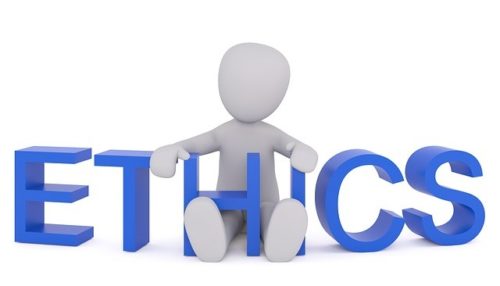-
Immigration Basics: Coming to America and Staying
-
The Fifth Amendment’s Essential Role in Offshore Audits
-
Online Civility and Professionalism for Attorneys Online Civility and Professionalism for Attorneys In the realm of legal practice, the issue of incivility among lawyers is a multifaceted concern, with varying beliefs about its prevalence and causes. Some point to the portrayal of lawyers in media and a blurred line between assertiveness and rudeness, while others blame technology and the divisive state of public discourse. Several states, like New York, Utah, and Illinois, have established programs and hotlines to address ethics and professionalism. Surveys suggest that a majority of lawyers perceive their colleagues as civil, yet many still report experiencing uncivil behavior. In California, attorney guidelines emphasize civility and respect in communications and interactions within the legal system. To counter incivility, legal professionals are advised to maintain written records of inappropriate conduct, engage in open discussions with opposing counsel, and seek guidance from mentors or senior attorneys. Additionally, online civility presents distinct challenges due to anonymity, potential miscommunication, and the risk of harassment. Lawyers are encouraged to be cautious about sensitive topics and consider legal actions if harassment occurs. Agenda/ Obejectives - Understanding the Roots of Incivility and Professionalism - 6 Minutes - State Initiatives and Ethics Programs - 8 Minutes - Survey Insights and Lawyer Perceptions - 7 Minutes - Attorney Guidelines of Civility and Professionalism - 11 Minutes - Challenges in Online Civility and Professionalism - 8 Minutes - Strategies for Promoting Civility and Professionalism - 10 Minutes - Privacy and Sensitivity in Legal Practice - 8 Minutes - Taking Action Against Online Incivility and Professionalism - 7 Minutes
-
Pro Bono Representation: Help the Profession Help Others
-
Basics of Landlord/Tenant Law for Ohio
Discover the essentials of landlord/tenant law in Ohio with this concise course. Whether you're a landlord or tenant, gain insights into key topics such as lease agreements, security deposits, eviction procedures, and property maintenance. Learn about your rights and responsibilities under Ohio law to establish fair and harmonious rental relationships. Please note that this course provides an overview and should not be considered legal advice. Consult an attorney for specific cases or unique circumstances. Start your journey towards understanding Ohio's landlord/tenant law today!
Agenda:
-
Overview of Landlord/Tenant Law
-
Define landlord/tenant law
-
Discuss the importance of understanding the legal framework
-
-
Lease Agreements
-
Explain the key elements of a lease agreement
-
Discuss common terms and provisions
-
Highlight the significance of written agreements
-
-
Security Deposits
-
Describe the purpose and regulations surrounding security deposits
-
Explain procedures for handling and refunding deposits
-
Discuss legal requirements for documenting damages
-
-
Rent Increases
-
Explain the rules and limitations on rent increases in Ohio
-
Discuss proper notice requirements
-
-
Eviction Procedures
-
Outline the steps involved in evicting a tenant
-
Explain the legal grounds for eviction
-
Discuss the importance of adhering to proper procedures
-
-
Property Maintenance
-
Discuss landlord responsibilities for maintaining the rental property
-
Highlight tenants' rights to habitable living conditions
-
Address common maintenance issues and dispute resolution
-
-
Tenant Rights
-
Explain tenants' rights under Ohio's fair housing laws
-
Discuss protections against wrongful eviction and discrimination
-
Briefly cover privacy rights and access to the property
-
-
-
Information Law Firms Collect and Store – What to do in the Event of a Cyber Breach? When storing information, it can be done on paper or digitally on personal/shared computers, systems, files, or vendor applications. Regulatory requirements like state laws, GLBA, FERPA, GDPR must be considered. Plan and risk assessments, encryption, and access controls are used to support compliant environments. Protocols for breaches, legal holds, and employee changes must be put in place. Third-party vendors and outsourced staff must be considered. In case of a breach, notifying insurance carriers, healthcare providers, finance entities, schools, and individuals affected is crucial. AGENDA:
- Introduction to information storage
- Paper vs. digital storage
- Personal and shared computer storage
- System, files, and vendor application storage
- Regulatory requirements, including state laws, GLBA, FERPA, GDPR, and BAAs
- Risk assessments, plan development, and encryption
- Tailoring privacy practices to company size and IT capabilities
- Outsourced staff and third-party vendor considerations
- Processes for sharing information via email or e-sign
- Protocols for managing breaches, legal holds, and employee role changes
- Access controls, including physical, administrative, and technical measures
- Response to breaches, including notifying insurance carriers, healthcare providers, schools, and individuals affected
-
Fair Debt Collection Practices Act
Fair Debt Collection Practices Act
Faculty: Boyd W. GentryThe Fair Debt Collection Practices Act (FDCPA) regulates the behavior of debt collectors who attempt to collect personal, family, or household debts on behalf of creditors. Compliance with the FDCPA is crucial to avoid legal repercussions as it provides strict guidelines on acceptable debt collection practices, prohibits abusive, false or misleading behavior, and imposes civil liability for violations.
Agenda
Overview of the FDCPA
-
Briefly introduce the FDCPA and its purpose
-
Provide a high-level overview of the topics to be covered in the session
Why comply with the FDCPA?
-
Discuss the consequences of non-compliance with the FDCPA
-
Explain the benefits of compliance for debt collectors
Who is a “debt collector” regulated by the FDCPA?
-
Define the term “debt collector” under the FDCPA
-
Explain who is regulated by the FDCPA and who is not
To what “debts” does the FDCPA apply?
-
Discuss the types of debts that are covered by the FDCPA
-
Explain the types of debts that are not covered by the FDCPA
Finding the Debtor and what can and must I say?
-
Discuss the rules and limitations on contacting debtors
-
Explain what information debt collectors must provide to debtors when contacting them
Communicating with Third Parties
-
Discuss the limitations on contacting third parties to obtain information about debtors
-
Explain the types of information that can and cannot be disclosed to third parties
Validation of debts [15 USC 1692g]
-
Discuss the requirements for debt validation under the FDCPA
-
Explain the timeline for debt validation and what information must be provided to debtors
Cease Communication Requests
-
Explain the rules for honoring requests to cease communication from debtors
-
Discuss the consequences of failing to honor a cease communication request
Prohibited debt collection practices
-
Discuss the types of debt collection practices that are prohibited under the FDCPA, including harassment or abuse, false or misleading representations, and unfair practices
-
Explain the consequences of engaging in prohibited debt collection practices
Legal actions and civil liability
-
Discuss the legal actions that debt collectors can take under the FDCPA to collect debts
-
Explain the civil liability that debt collectors can face for violating the FDCPA
-
-
Help for the Helper: The Effects of Trauma and Compassion Fatigue on the Lawyer Who Cares Many of us were attracted to the legal profession because we care about people and want to help them. Attorneys hopefully recognize that, unlike many other professionals, their lives are already filled to the brim with anxiety and stress.The consequences of shrugging it off can be catastrophic. One of those consequences that we often hear about is burnout. And then there’s a special type of burnout called “secondary traumatic stress” or “compassion fatigue”. The ramifications of trauma and compassion fatigue aren’t discussed as frequently as those of stress and burnout thus, for many attorneys, they are topics in need of attention. Secondary or vicarious trauma can be the cumulative effect of listening to a client or witness relay graphic stories and experiences. Those who experience compassion fatigue tend to take on the pain, suffering and burdens of the people they are helping. It is an exhaustion that is felt physically, emotionally or mentally and can affect numerous areas of your life, often leaving you feeling numb. Recent studies have shown that there has been a dramatic increase in impairment due to alcoholism, addiction and mental health disorders among members of the legal profession. The statistics are compelling and clearly indicate that 1 out of 3 attorneys will likely have a need for substance use or mental health services at some point in their careers. Mr. Quinn will discuss: 1. The early warning signs of impairment, with special emphasis on stress, burnout, trauma and compassion fatigue. 2. The free services that Lawyers Assistance Programs provide to lawyers, judges, their family members and law students. 3. A close look at what barriers exist that prevent lawyers and judges from seeking the help they need will be provided. 4. The role that education plays in breaking the stigma and fear associated with addiction and mental illness in the legal profession. 5. How best to approach the impaired individual.
-
Unauthorized Practice of Law: Ethical Dilemmas and the Rule of Law Unauthorized practice of law, or UPL, refers to the practice of law by individuals or entities who are not authorized to do so. The purpose of regulating UPL is to ensure that only licensed attorneys are able to provide legal services to the public, thereby preserving the integrity of the legal profession and protecting the public from harm. However, tensions can arise when consumers require legal services that they perceive as too expensive if provided by a licensed attorney or firm. This course explores the complexities of UPL, including the balancing factors that states use to address these issues. It also examines various situations where non-lawyer entities may pose a risk to the public, and how lawsuits have been used to limit or curtail their activities. By understanding the risks and challenges associated with UPL, legal professionals can take steps to safeguard the public and ensure the continued value of licensing and ethical controls such as Bar Associations and Court systems. AGENDA
- Defining Unauthorized Practice of Law
- Discuss what constitutes unauthorized practice of law
- Explain why regulating UPL is necessary
- Balancing Consumer Needs and Protecting the Public
- Discuss the tension between consumers' need for affordable legal services and protecting the public from harm
- Explore how certain states have attempted to balance these needs through legislation and regulations
- Examine situations in which non-lawyer entities have posed a risk to the public
- Discuss examples of lawsuits and other measures taken to limit or curtail these activities
- Legal and Ethical Controls
- Discuss the role of Bar Associations and Court systems in regulating the legal profession
- Explain how these entities help to ensure ethical and professional conduct among lawyers
- UPL and Technology
- Discuss how technology has impacted the unauthorized practice of law
- Explore the challenges and opportunities presented by technology in regulating UPL
- Enforcement of UPL Regulations
- Explain how UPL regulations are enforced
- Discuss the challenges and limitations of enforcement
- Examine case studies of UPL incidents and their outcomes
- Discuss what can be learned from these incidents
- Discuss the potential evolution of UPL regulation in the future
- Highlight emerging trends and challenges in regulating UPL
- Best Practices for Lawyers
- Discuss best practices for lawyers to avoid UPL violations
- Explain the consequences of UPL violations for lawyers
- Best Practices for Consumers
- Discuss best practices for consumers to avoid UPL risks
- Explain how consumers can ensure they are working with licensed attorneys
-
Technology & Bias Spreading It And Stopping It The provided materials cover a wide range of topics related to bias and strategies for addressing it. The first piece delves into the definition of bias as an unfair treatment or policy based on prejudice, and its implications in the realms of employment and public services. Another item explores Elimination of Bias Requirement, which encourages lawyers to confront and overcome their own biases in order to combat systemic discrimination. A third piece distinguishes between conscious and unconscious biases, highlighting the prevalence and potential negative impact of the latter. The fourth material focuses on the role of artificial intelligence in either perpetuating or mitigating bias in a variety of domains, including language, hiring, and evaluation. Finally, an additional resource emphasizes the potential for bias to arise when technology is not utilized, particularly in the context of age discrimination. AGENDA: 67 Minutes 5-15 minutes: Overview of the provided materials on bias and combating it 10-25 minutes: The first section, which defines bias as an unfair act or policy stemming from prejudice, which can manifest in employment and public services 25-40 minutes: The second section, which discusses the goal of Elimination of Bias Requirement and aims to get lawyers to recognize and fight against their own internalized biases that may contribute towards systemic discrimination 40-50 minutes: The next section, which distinguishes between conscious and unconscious biases, with the latter being more prevalent and often incompatible with one's conscious values 50-60 minutes: The fourth section, which covers the role of artificial intelligence in perpetuating or preventing bias in various domains, such as language, recruitment, and assessment 60-67 minutes: The fifth section, which highlights the bias that can occur from not using technology, particularly in the case of age discrimination.
-
Microsoft Office 365 For Attorneys The Office 365 Groups feature can be beneficial to lawyers as it provides a centralized location for collaboration and communication among team members working on a matter. By creating a Group, attorneys, paralegals, assistants, and support staff can use a shared inbox to discuss the matter, add events and deadlines to a shared calendar, collect resources and research in OneNote, and upload documents to a shared document library for collaboration. This can improve efficiency and productivity by allowing team members to access all necessary information from wherever they are, on any device with internet access. Additionally, outside co-counsel or experts can be added to the Group as well, making it easier to collaborate with external parties. Finally, the Office 365 Forms feature can be used to create forms and quizzes for client input, which can help attorneys better understand and meet their clients' needs. AGENDA
- Introduction to Office 365 Groups and its benefits for lawyers
- Creating an Office 365 Group for a matter
- Using the shared inbox for communication
- Adding events and deadlines to the shared calendar
- Collecting resources and research in OneNote
- Uploading documents to the shared document library
- Collaborating with outside co-counsel or experts
- Using Office 365 Forms for client input
- Conclusion and summary of the benefits of Office 365 Groups for lawyers
-
Elimination of Bias in the Legal Profession: Both Personally and Professionally This program is designed to provide a comprehensive understanding of laws regarding bias and discrimination, and how they apply specifically within the legal profession, but overlap with a lawyer's personal life. Participants will learn about the latest developments in state and federal laws governing bias and discrimination, and will be exposed to relevant practical examples of bias and discrimination under state and federal law. Through the program, participants will develop the ability to identify not just overt gender bias, but also subtle gender bias, stereotyping, and prejudices. The ethical rules that apply to exhibiting bias and discrimination in a work setting, as well as dealing with clients and potential clients will also be covered. The agenda will include strategies to eliminate and prevent bias within the workplace and a review of tips for creating an inclusive culture. Agenda:
- Introduction: Welcome and overview of the seminar's objectives and key topics to be covered.
- Developments in State and Federal Laws: A review of recent developments and updates in state and federal laws related to bias and discrimination and their implications for the legal profession.
- Practical Examples of Bias and Discrimination: Discussion of real-life scenarios and case studies that illustrate bias and discrimination within the legal profession.
- Identifying and Addressing Bias: Techniques for identifying and addressing overt and subtle bias, stereotyping, and prejudices in the workplace and beyond.
- Ethical Rules and Responsibilities: An overview of the ethical rules and responsibilities that apply to exhibiting bias and discrimination in the legal profession, including how to interact with clients and potential clients.
- Strategies for Eliminating and Preventing Bias: Discussion of strategies and best practices for eliminating and preventing bias within the workplace, including tips for creating an inclusive culture.
- Summary of key takeaways and next steps for attendees to continue learning and implementing the information covered in the seminar.
-
Effective and Ethical Use of Experts One of the most important issues lawyers face in preparing for trials and other hearings is whether or not to retain an expert. This program will cover the range of topics and issues that would benefit from expert testimony, including the relevant legal issues and arguments, as well as how to prepare your expert to take the stand. It will also cover what should factor into the decision as to whether to retain an expert for consultation purposes only, or also to testify in court. This program will cover applicable ethics rules and standards that apply to using expert witnesses. It will include the ABA Model Rules, Ethics Opinions, the ABA Criminal Justice Section Standards, and applicable case law. Issues range from compensation, to independence of opinion, to potential conflict of interest, to manner of testifying. This program will also cover preparing an expert to testify, including how to tailor the method and manner of testimony to the facts of your case. Because jurors do not appreciate (or understand) an expert who speaks in industry-specific jargon from an ivory tower, this program will cover how to humanize your expert. In covering this important interpersonal angle, it will present discuss the results of research studies investigating juror perception of expert witnesses. Agenda:
- Introduction to the importance of considering ethical expert testimony in legal proceedings
- Overview of ethical legal issues and arguments that benefit from expert testimony
- Discussion of ethical factors to consider when deciding whether to retain an expert for consultation or testimony
- Explanation of applicable ethics rules and standards for using expert witnesses, including ABA Model Rules, Ethics Opinions, Criminal Justice Section Standards, and relevant case law
- Discussion of compensation, independence of opinion, potential conflicts of interest, and manner of testifying in ethical manner
- Ethical Techniques for preparing an expert to testify, including tailoring testimony to the facts of the case
- Ethical Strategies for humanizing an expert and avoiding industry-specific jargon
- Ethical Presentation of research studies on juror perception of expert witnesses
-
Order in the Court: Ethical Interaction With Judges Lawyers have a duty to uphold ethical standards while zealously advocating for their clients. But where is the line when it comes to challenging judges and their rulings? This program will explore the ethical rules that govern a lawyer's interaction with judges both in and out of the courtroom, using real-life examples and cases as illustrations. It will delve into the ethical considerations of not only what lawyers can say to judges in the courtroom, but also what they can say about them in the court of public opinion. This course will provide a thorough analysis of contemporary courtroom dynamics between attorneys and judges, as illustrated by case law, rules of professional conduct, as well as recent high-profile cases. It will discuss the ethical dilemmas that attorneys face in attempting to gain the best advantages for clients, while adhering to the boundaries of applicable ethical and legal standards. Agenda
- Introduction to the importance of ethical considerations in a lawyer's interaction with judges
- Exploration of ethical rules that govern a lawyer's interaction with judges in and out of the courtroom
- Analysis of ethical considerations for what lawyers can say to judges in the courtroom and in the court of public opinion
- Examination of contemporary courtroom dynamics between attorneys and judges through case law, rules of professional conduct and high-profile cases
- Discussion of ethical dilemmas that attorneys face in attempting to gain the best advantages for clients within the boundaries of applicable ethical and legal standards
-
Oklahoma 2 Credits Ethics Bundle Bundle Courses Include: Order in the Court: Ethical Interaction With Judges (1 Ethics Credit) Effective and Ethical Use of Experts (1 Ethics Credit)
-
Welcome to NCAA & Name, Image, Likeness – Updates & Anarchy in America! The last four years have been a watershed moment in amateur college sports. From the possibility of losing eligibility for pursuing endorsement offers in 2019 to signing multi-million dollar deals in 2022 this is a new era for student-athletes. Sports lawyers will learn about how we got here and how the intersection of NIL deals, the NCAA Transfer Portal & Boosters have changed the college sports landscape. And we know this much…where we are now and what is allowed or not allowed today will change rapidly and frequently. It will be critical for lawyers to stay up to date as the NCAA, federal legislators and states continue to jockey for position in controlling the direction of college sports.
-
In this timely, and compelling, CLE program, attorney Michael J. Deblis Presents, “Anatomy of a Civil Tax Controversy” Join attorney Deblis as he walks you through the anatomy of a civil tax controversy from A through Z. This program will cover each step in the process, and will take a closer look at what to do during an eggshell audit. Other topics to be discussed include cases typically recommended for prosecution, attorney-client privilege in the tax realm, Kovel Agreements, IRS Appeals, and more. This program is a must for any attorney Learning Objectives In-depth overview of the anatomy of a civil tax controversy from A through Z Best practices for walking your client through an eggshell audit A Review attorney-client privilege in the tax realm Discuss the use of a Kovel Accountant and drafting an airtight Kovel Agreement A Comprehension of the IRS Appeals Process Evaluate the hazards of litigation
-
Paying for Referrals: A Danger to the Payor and Recipient's Freedom.
-
Overview of the Freedom of Information Act In this timely and compelling CLE program, Attorney, Peter Sorenson presents “Overview of the Freedom of Information Act”. The program begins discussing how to help attorneys - in all fields of practice - learn how to more successfully navigate the FOIA process to better support their clients. Mr. Sorenson continues to explain the phases/steps of the FOIA process and the background and Purpose of FOIA. Mr. Sorenson then covers case law, hypotheticals, and practical tips to increase a positive FOIA request. The program concludes with an overview of the administrative appeal phase, and the judicial review phase. This program is a must for any attorney.
-
Physician Employment Agreements: Problem Areas that can be Landmines
-
The Healthcare Quality Improvement Act: How to Achieve Immunity in Your Peer Review Process
-
Dealing with the Disruptive Practitioner in a Legally Compliant Manner
-
Direct Examination: Making the Witness Look Good
-
How the IRS Reconstructs Income in Tax Fraud Cases
-
Taking Off the Gloves: What to Expect in U.S. Tax Court
-
Unfair, Deceptive, or Abusive Acts or Practices (UDAAP)
-
"Shackled to Our Screens: How Technology Has Imprisoned the Legal Profession"




